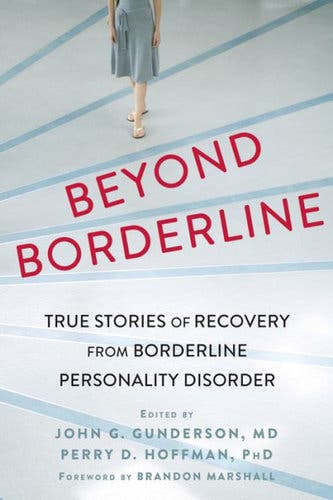Perry Hoffman, a former elementary-school teacher and a mother of three with a degree in social work, was working part time in a psychiatric ward when she became fascinated by borderline personality disorder, a poorly understood condition characterized by extreme neediness and dark swarms of emotion.
Her interest led her to perform research on the condition, which usually strikes in the teenage years or earlier and takes a harsh toll on family members. That gave her an idea: a support organization for relatives.
She went on to co-found and direct a family network that not only provided authoritative education about borderline personality but also built skills to manage it, enlisting parents to teach parents. The program, which became available throughout the world, is seen as a model across psychiatry.
Dr. Hoffman died on Nov. 3 at her home in Mamaroneck, N.Y. She was 75. Her husband, Bruce Hoffman, said the cause was Creutzfeldt-Jakob disease, a neurodegenerative disorder.
Psychiatric researchers had done years of painstaking work to understand how the patterns of communication within families influence the development and course of mental disorders. By the mid-1980s, when Dr. Hoffman was beginning to remake her career, they had linked certain family environments — those that are particularly critical, for instance, or overprotective — to worse outcomes for people with schizophrenia and depression.
Dr. Hoffman wanted to know about the impact of family environments on people with borderline personality disorder, and in the mid-1990s she teamed with Jill M. Hooley, a psychology professor at Harvard.
“It was an absolutely new idea, to look at the impact of factors like criticism, hostility and emotional overinvolvement in these families,” Dr. Hooley said in a phone interview. The findings were entirely unexpected: For instance, a particularly critical family environment did not have much apparent impact on borderline symptoms over time, but an overinvolved, protective and doting one did.
“Higher levels of emotional overinvolvement were associated with better outcomes and absence of re-hospitalization,” the pair concluded, in a landmark paper published in 1999 in The American Journal of Psychiatry.
Shortly afterward, in 2001, Dr. Hoffman co-founded the National Education Alliance for Borderline Personality Disorder, which soon became one of the country’s leading parent support organizations in mental health. She and Alan E. Fruzzetti, a psychologist at Harvard, developed the alliance’s Family Connections program, a series of group sessions in which families teach each other how to cope, guided by some of the very principles used by therapists.
“She democratized the entire field; she brought together patients, family members, professionals, all in the same room — that was her idea, and it was unheard-of at the time,” Mr. Fruzzetti said in a phone interview.

The success of the program became its own kind of hard evidence in refuting myths about borderline personality disorder, which is marked by neediness, baiting and emotional outbursts that appear so often to be the symptoms of poisoned relationships. “A lot of psychotherapists tend to lean in and blame families, and she was a force against all that,” said Dr. Lois Choi-Kain, director of the Adult Borderline Center and Training Institute at McLean Hospital.
Perry Ann Dunn was born on July 21, 1944, in New York City, the second of three children of Joseph Dunn, an engineer, and Edith (Goldstein) Dunn, a homemaker. The couple had fled Europe during the Nazi era.
The family moved to Larchmont, where Perry grew up. She attended Mamaroneck High School, where she met Mr. Hoffman. The two became a couple, and married in 1966.
She attended Temple University in Philadelphia, earning a bachelor’s degree in teaching, and taught elementary school for two years in England before becoming pregnant with her first child.
In addition to her husband, Dr. Hoffman is survived by three children, Brendan and David Hoffman and Rennie Silverman; seven grandchildren; and a sister, Joy Dunn. Her brother, Richard Dunn, died before her.
On returning to New York, Dr. Hoffman continued to teach elementary school, now part time, while attending Fordham University at night for a master’s degree in social work, which she received in 1984. She continued coursework at night and eventually received a Ph.D. from New York University. By that time, while working part time at New York Hospital in White Plains, she had become hooked by the strange family dramas of borderline personality disorder.
“It was all about family, family, family with Perry,” Mr. Hoffman said. “Her own, first; and then so, so many others’.”
She later co-wrote two influential treatment texts for therapists and a book for a general audience, “Beyond Borderline: True Stories of Recovery From Borderline Personality Disorder” (2016), with Dr. John Gunderson. Brandon Marshall, a wide receiver in the National Football League who has been public about his diagnosis, wrote the foreword.
In one of the papers she wrote with Dr. Hooley, Dr. Hoffman cited the kind of evidence for family-led treatment that, by all accounts, she was especially aware of.
“It is not unusual for group members to stay after the formal group meeting ends,” she observed. “In some cases, families have been asked to leave to permit the custodians to close up the building.”

